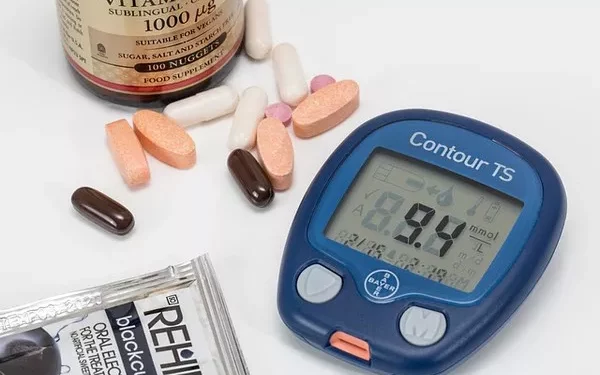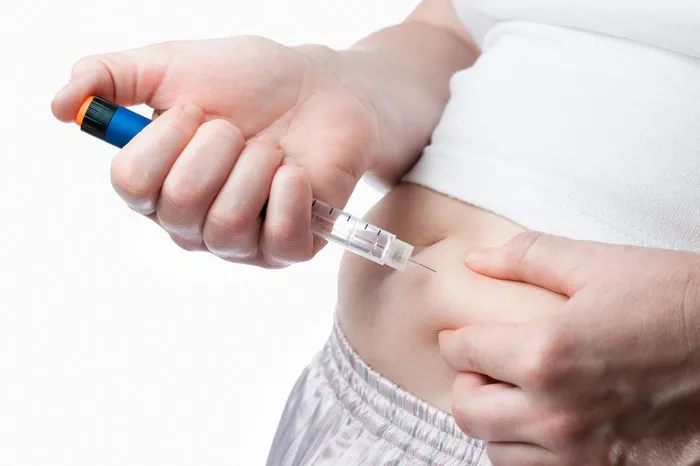High fasting blood sugar levels in non-diabetic individuals can indicate underlying health conditions or lifestyle factors that affect glucose metabolism. This article explores the various causes, implications, diagnostic considerations, and management strategies related to elevated fasting blood sugar levels.
Understanding Fasting Blood Sugar
Normal Fasting Blood Sugar Levels
Fasting blood sugar levels are typically measured after an overnight fast of at least 8 hours. In non-diabetic adults, normal fasting blood sugar levels generally range between 70 to 100 milligrams per deciliter (mg/dL) or 3.9 to 5.6 millimoles per liter (mmol/L). Levels above this range may indicate hyperglycemia.
Causes of High Fasting Blood Sugar in Non-Diabetics
Dietary Factors
High Carbohydrate Intake
Consuming a diet high in refined carbohydrates, sugars, and processed foods can lead to rapid spikes in blood sugar levels. Over time, this can contribute to insulin resistance and higher fasting blood sugar levels, even in non-diabetic individuals.
Inadequate Fiber Intake
A diet lacking in fiber-rich foods such as fruits, vegetables, and whole grains can impair blood sugar control. Fiber helps slow the absorption of glucose and promotes stable blood sugar levels.
Physical Inactivity
Lack of regular physical activity reduces the body’s ability to utilize glucose effectively. Exercise improves insulin sensitivity, allowing cells to take up glucose from the bloodstream and lowering fasting blood sugar levels.
Stress and Cortisol
Stress Hormones
Stress activates the body’s “fight-or-flight” response, triggering the release of hormones such as cortisol and adrenaline. These hormones increase blood sugar levels by stimulating glucose release from the liver, contributing to high fasting blood sugar levels.
Chronic Stress
Prolonged or chronic stress can lead to sustained elevation of cortisol levels, promoting insulin resistance and higher fasting blood sugar levels over time.
Medications and Supplements
Certain Medications
Some medications, such as corticosteroids (e.g., prednisone), beta-blockers, and certain antidepressants, can elevate blood sugar levels in non-diabetic individuals. These medications may affect insulin sensitivity or glucose production in the liver.
Supplements
High doses of certain supplements, such as niacin (vitamin B3), can temporarily increase blood sugar levels. It’s essential to consult healthcare providers before starting new supplements, especially if there are concerns about blood sugar levels.
Medical Conditions
Prediabetes
Prediabetes is a condition where blood sugar levels are higher than normal but not high enough to be diagnosed as diabetes. Individuals with prediabetes may experience elevated fasting blood sugar levels due to insulin resistance or impaired glucose metabolism.
Hormonal Imbalances
Conditions such as polycystic ovary syndrome (PCOS), thyroid disorders (hypothyroidism or hyperthyroidism), and adrenal gland disorders can affect hormone levels and contribute to insulin resistance or impaired glucose regulation.
Liver Disease
Liver conditions, such as fatty liver disease or hepatitis, can affect the liver’s ability to regulate glucose production. This can lead to higher fasting blood sugar levels, even in non-diabetic individuals.
Sleep Disorders
Obstructive Sleep Apnea (OSA)
OSA is associated with interrupted sleep patterns and reduced oxygen intake during sleep. It can lead to insulin resistance and higher fasting blood sugar levels due to hormonal changes and increased stress responses.
Sleep Deprivation
Chronic sleep deprivation or poor sleep quality can disrupt hormone production, including cortisol and growth hormone, which regulate blood sugar levels. This disruption can contribute to elevated fasting blood sugar levels over time.
Diagnostic Considerations
Blood Tests
If elevated fasting blood sugar levels are detected, healthcare providers may recommend further testing, such as:
- A1C Test: Provides an average of blood sugar levels over the past 2-3 months.
- Oral Glucose Tolerance Test (OGTT): Measures blood sugar levels before and after consuming a sugary drink to assess glucose tolerance.
- Fasting Insulin Levels: Assesses insulin production and sensitivity.
Medical History and Physical Examination
Healthcare providers will evaluate medical history, symptoms, lifestyle factors, and physical examination findings to determine potential causes of high fasting blood sugar in non-diabetic individuals.
Management and Treatment
Lifestyle Modifications
Dietary Changes
Emphasize a balanced diet rich in whole grains, fruits, vegetables, lean proteins, and healthy fats. Limit intake of sugary foods and refined carbohydrates to help stabilize blood sugar levels.
Regular Physical Activity
Engage in regular aerobic exercise (e.g., brisk walking, swimming, cycling) and resistance training to improve insulin sensitivity and glucose metabolism.
Stress Management
Practice stress-reducing techniques such as mindfulness, meditation, yoga, and relaxation exercises to lower cortisol levels and promote better blood sugar control.
Medication Adjustments
If medications are contributing to high fasting blood sugar levels, healthcare providers may adjust dosages or explore alternative medications with fewer effects on glucose metabolism.
Treatment of Underlying Conditions
Addressing underlying medical conditions such as prediabetes, hormonal imbalances, or sleep disorders may involve specific treatments tailored to individual needs.
Monitoring and Follow-Up
Regular Blood Sugar Monitoring
Periodic monitoring of fasting blood sugar levels, A1C, and other relevant tests helps track progress and evaluate the effectiveness of lifestyle changes and treatments.
Healthcare Provider Collaboration
Collaborate with healthcare providers, including physicians, registered dietitians, diabetes educators, and specialists, to develop a personalized management plan and receive ongoing support.
See also: What’s Clinical Features of Diabetes Mellitus
Conclusion
In conclusion, high fasting blood sugar levels in non-diabetic individuals can stem from various factors, including dietary habits, physical inactivity, stress, medications, medical conditions, and sleep disturbances. Understanding these underlying causes is crucial for implementing targeted interventions to improve blood sugar control and overall health. By adopting healthy lifestyle habits, managing stress effectively, addressing underlying medical conditions, and collaborating with healthcare providers, individuals can achieve better control of fasting blood sugar levels and reduce the risk of developing diabetes or other related complications. Regular monitoring and personalized care are key to maintaining optimal health and well-being. Always consult with a healthcare provider for guidance tailored to your specific needs and circumstances regarding high fasting blood sugar levels.
Related topics:
Diabetic Neuropathy VS Peripheral Neuropathy What’s the Difference



























